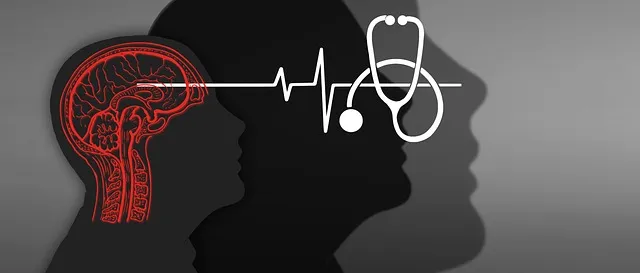Kaiser Permanente's training programs in Castle Rock leverage positive thinking, emotional intelligence (EI), and compassion cultivation practices to empower healthcare providers and community members. These holistic initiatives enhance well-being, mental resilience, and self-care, reducing stress and preventing burnout. Through evidence-based techniques like mindfulness meditation and affirmations, participants cultivate optimism, improve relationships, and contribute to healthier communities. Measured success demonstrates the transformative impact of these programs on mental wellness outcomes.
Positive thinking exercises are gaining prominence as powerful tools for enhancing mental resilience and overall well-being. This article explores the implementation of such practices, drawing insights from leading organizations like Kaiser Permanente and community initiatives in Castle Rock. We delve into strategies to incorporate positive thinking into daily routines, backed by evidence from successful training programs. By understanding these approaches, individuals can unlock their mental potential and foster a more optimistic, resilient mindset.
- Understanding Positive Thinking: Unlocking Mental Resilience
- Kaiser Permanente Training Programs: A Holistic Approach to Well-being
- Castle Rock Community Engagement: Empowering Individuals through Positive Thinking
- Implementing Effective Positive Thinking Exercises in Daily Life
- Measuring Success: Evaluating the Impact of Positive Thinking Training
Understanding Positive Thinking: Unlocking Mental Resilience

Positive thinking is a powerful tool that can unlock mental resilience and significantly enhance overall well-being. It involves training the mind to focus on positive thoughts, beliefs, and expectations, even in challenging situations. This concept has gained significant traction through various Kaiser Permanente training programs in Castle Rock, which emphasize the development of emotional healing processes among healthcare providers.
By fostering a positive mindset, individuals can improve their ability to cope with stress, boost self-confidence, and enhance overall mental fortitude. The Kaiser Permanente training programs in Castle Rock not only focus on public awareness campaigns but also delve into cultural competency training, ensuring that healthcare providers can offer compassionate care tailored to diverse patient needs. This holistic approach to emotional healing processes is transforming lives, making communities healthier and more resilient.
Kaiser Permanente Training Programs: A Holistic Approach to Well-being

At Kaiser Permanente Castle Rock, we understand that well-being is a holistic concept encompassing not just physical health, but also mental and emotional resilience. To this end, our comprehensive training programs integrate various practices designed to foster holistic well-being. Among these, Emotional Intelligence (EI) stands out as a cornerstone of our approach. We believe that cultivating EI skills empowers individuals to better understand and manage their emotions, leading to enhanced relationships and overall life satisfaction.
In addition to EI development, our programs emphasize Compassion Cultivation Practices (CCP). These practices are based on decades of research showing their effectiveness in reducing stress, anxiety, and symptoms of depression. By incorporating CCP into our training, Kaiser Permanente Castle Rock aims to equip individuals with tools to navigate life’s challenges with greater equanimity and compassion, ultimately contributing to preventive measures against mental health issues like Depression Prevention.
Castle Rock Community Engagement: Empowering Individuals through Positive Thinking

Castle Rock Community Engagement is a powerful initiative that aims to empower individuals through the lens of positive thinking. Inspired by Kaiser Permanente’s training programs, this community-driven approach focuses on enhancing well-being and resilience among residents. By fostering cultural competency, as seen in the Healthcare Provider Cultural Competency Training, participants gain valuable insights into self-care practices, a crucial aspect often overlooked in high-pressure healthcare environments. This initiative promotes burnout prevention strategies for healthcare providers by teaching them to prioritize mental health and cultivate optimistic perspectives. Through interactive workshops and group discussions, individuals learn practical techniques to navigate challenges with positivity, ultimately enriching their lives and the communities they serve.
Implementing Effective Positive Thinking Exercises in Daily Life

Implementing effective positive thinking exercises in daily life can significantly enhance one’s overall well-being, much like the Kaiser Permanente training programs in Castle Rock that prioritize holistic health. These practices are not just about superficial optimism; they are rooted in evidence-based techniques designed to strengthen mental resilience and emotional intelligence. By integrating such exercises into their routines, individuals can better manage stress, improve coping skills development, and even inform their Mental Health Policy Analysis and Advocacy efforts.
For instance, mindfulness meditation, a popular positive thinking exercise, has been shown to reduce anxiety and depression while improving focus and emotional regulation. Similarly, affirmations and gratitude practices can shift one’s mindset from negative to positive thought patterns, fostering a more optimistic outlook on life. These simple yet powerful tools are accessible to everyone and can be easily incorporated into daily schedules, making them invaluable resources for anyone looking to improve their mental health and overall quality of life.
Measuring Success: Evaluating the Impact of Positive Thinking Training

Measuring success is a vital aspect of any training program, and positive thinking exercises are no exception. At Castle Rock, Kaiser Permanente’s comprehensive training programs have shown remarkable outcomes in enhancing mental wellness. The impact of these initiatives can be evaluated through various methods, offering valuable insights into the effectiveness of positive thinking guidance.
One effective strategy involves tracking participant progress through self-reported measures like Mental Wellness Journals. This journaling exercise encourages individuals to reflect on their thoughts and emotions, providing a tangible record of improved mood management and stress reduction. Additionally, qualitative feedback from training sessions can highlight specific techniques that have resonated with participants, offering valuable guidance for future programs.
The implementation of positive thinking exercises, as demonstrated by Kaiser Permanente training programs and successfully adopted in Castle Rock community initiatives, offers a holistic approach to well-being. By empowering individuals with mental resilience, these programs not only enhance overall happiness but also measure significant impacts on personal growth and community engagement. Incorporating such practices into daily life can lead to profound transformations, fostering a more optimistic and resilient mindset.






